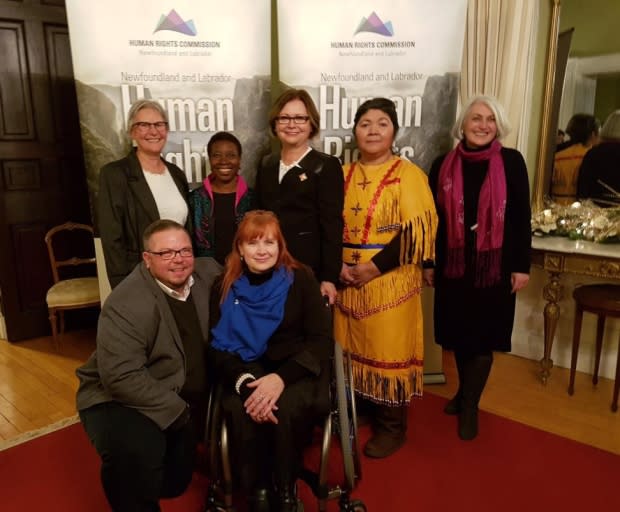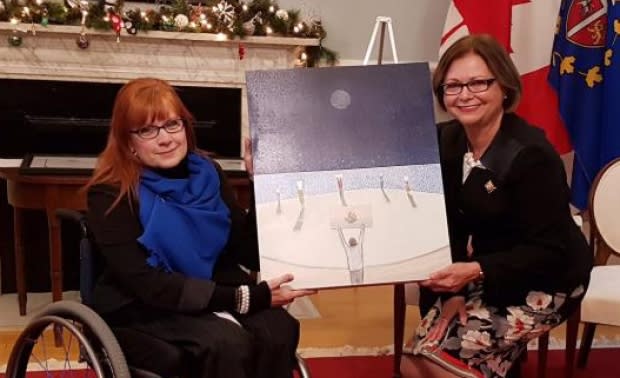Disability advocate, Innu leader and poverty activist lauded for human rights efforts
A St. John's woman who has devoted her life to advocating for people with disabilities and for better access to education won the Newfoundland and Labrador Human Rights Commission's Human Rights Award.
Kim White was credited for her work with Power Productions, the Coalition of Persons with Disabilities and other non-profit groups.
"I did shed a few tears," White said. "To be recognized like that, it is quite overwhelming."
White's journey to advocacy was born of converging circumstances and goals. When she was three, doctors removed a tumour from her spine, but the procedure caused mobility challenges. As she got older and became comfortable with her disability, White found herself plunged into a line of work she hadn't envisioned.

White graduated from Memorial University with an education degree, but found few job opportunities in the school system.
"I actually landed in the community-based sector, which is where I know now is where I'm meant to be."
Because of her own disability, White explained, she's always been aware of physical barriers that can hamper success. But from her clients and students, she learned about other boundaries she'd never considered.
"My eyes were really opened up to how people's worlds can impacted due to a lack of literacy or a lack of education," she said.
"Just because someone didn't realize the way we taught in the regular school system didn't meet their needs, and that we can change that."
Human rights champions
On top of the award, the Commission also designated two women "human rights champions".
Joanne Thompson was recognized for her work as executive director of the Gathering Place, a service centre in St. John's for people who are homeless, or in need of bettering housing and other supports.
The commission also commended Anastasia Qupee for a long career in community leadership in Sheshatshiu.

In 2004, Qupee became the first woman ever elected chief of Sheshatshiu Innu First Nation. She served two terms and later became grand chief of the Innu Nation, which represents Innu from both Sheshatshiu and Natuashish.
The former chief said she took inspiration from her mother, who was born in the Labrador wilderness back when the Innu were still nomadic. She moved to the settled community with the rest of her family, during a tumultuous time for a people who had to adapt to a different lifestyle.
"There was a lot of drinking going on and my mom, she kept us going. She provided the stability in our home."
These days, Qupee is the social health director of Sheshatshiu Innu First Nation. It's a job she's passionate about, with young, female colleagues she believes will someday be the leaders of Innu Nation.
"I can't say enough about them. They're just so great to work with," she said.
"That's what gives me hope. In talking to them, in getting them involved and getting their voices heard. And to me, that's the future."
Read more from CBC Newfoundland and Labrador

